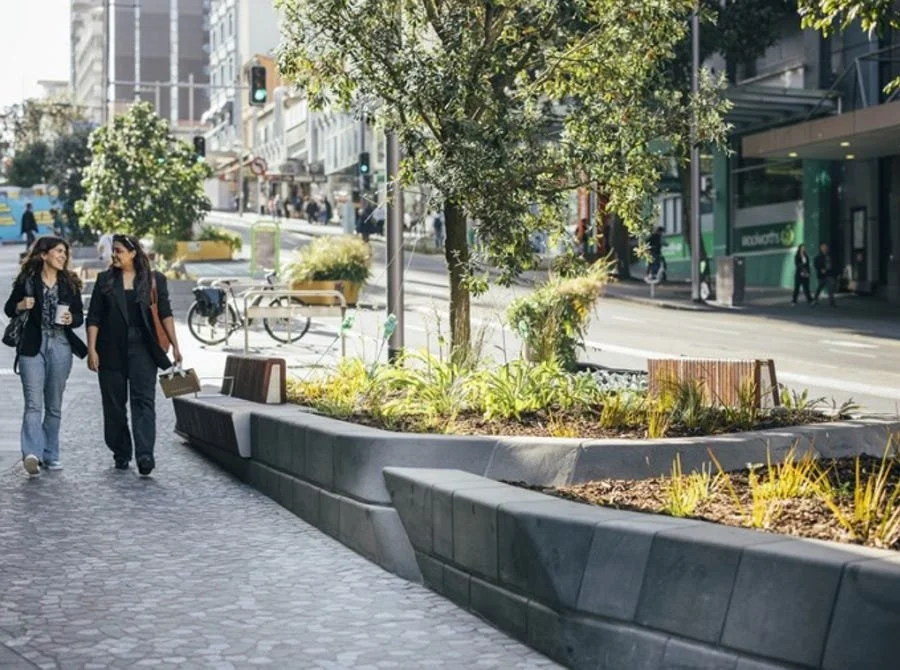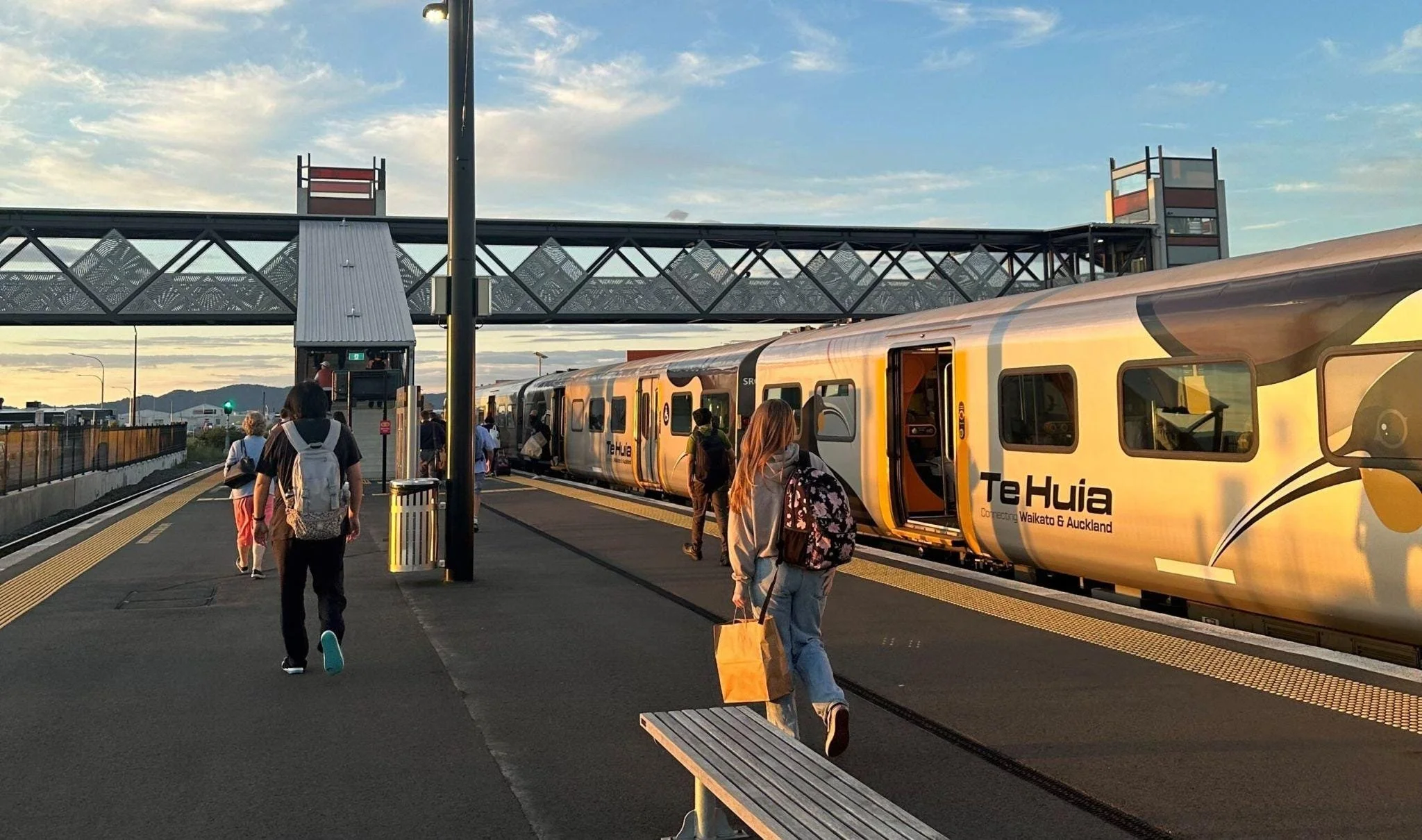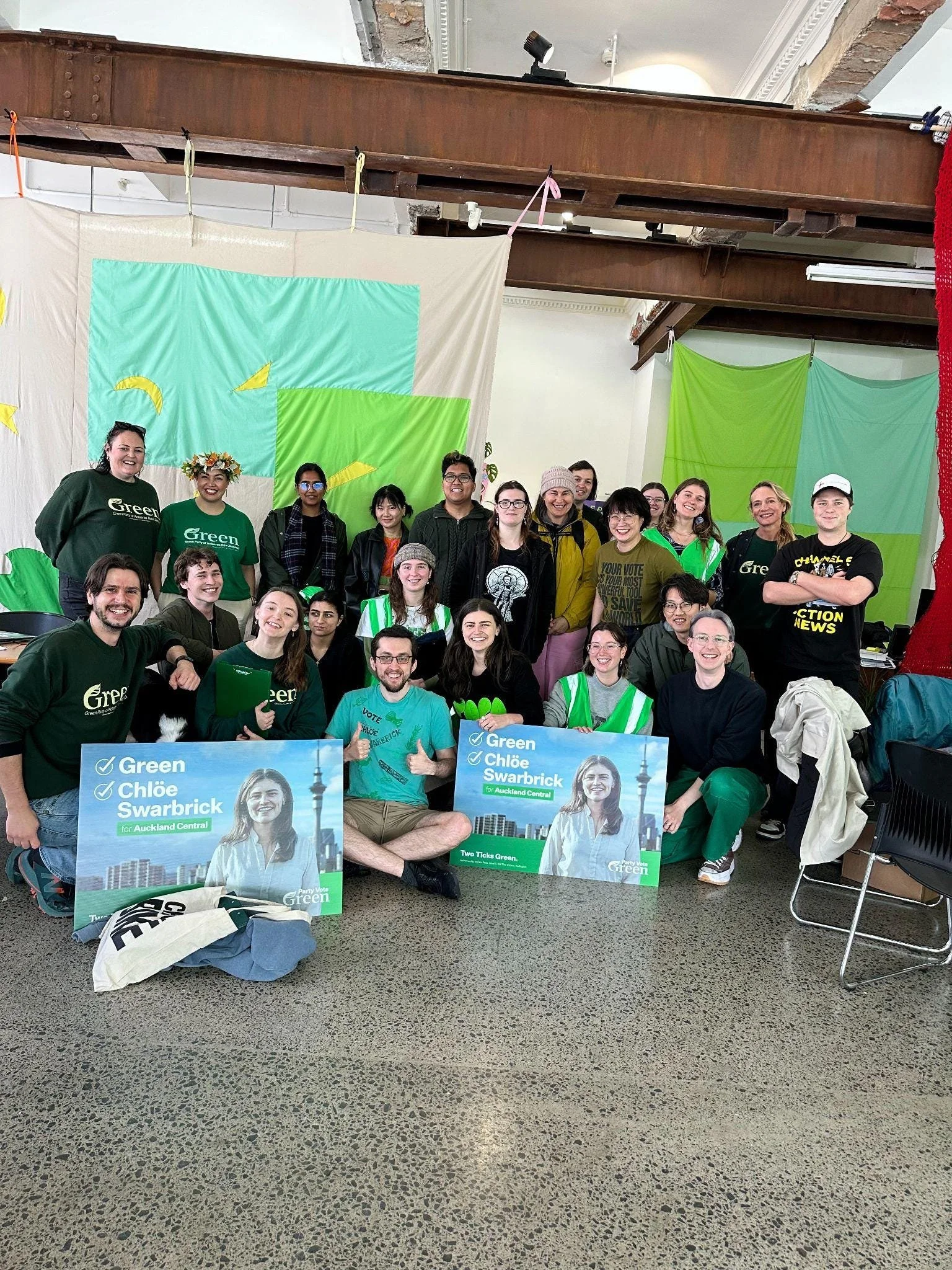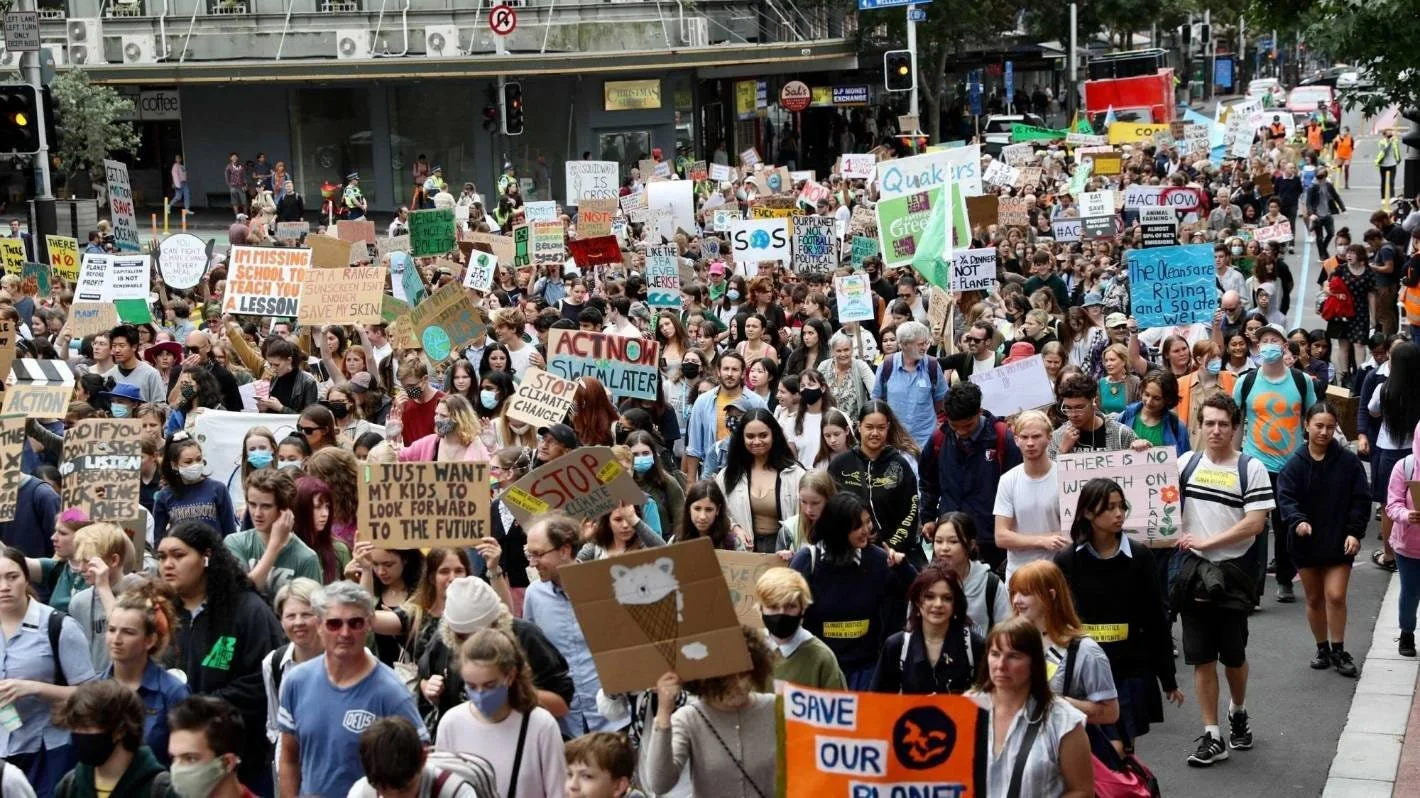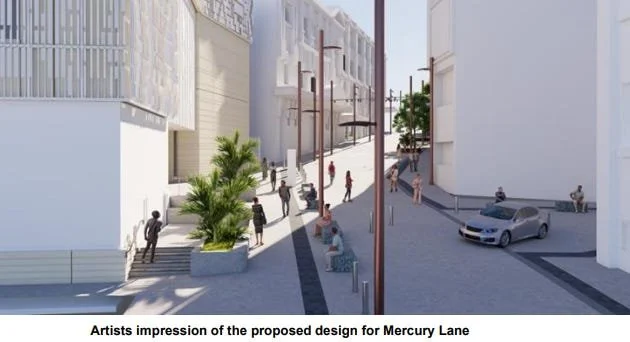Connor Sharp: Turning frustration into action
Crossposted from Connor’s post on Mountain Tui’s substack.
It's a funny emotion, frustration. And it can be overwhelming: feeling the world falling apart, not knowing what to do, not knowing how to help.
Frustration can trap us in a loop: doomscrolling social media, reading bad story after bad story to confirm things really are as terrible as they feel. And too much frustration? That can be a fast track to burnout, disengagement and cynicism.
But frustration can be a powerful motivator, too. That feeling of turmoil can push us to try and change whatever is causing it. To take action for the better. To reach out to others who may be feeling the same stress. This is vital.
Frustration can be a lever for change.
And by taking action, by working to change the world for the better, we can move towards hope. In fact, by doing something, we create hope.
What does this look like? I’ve written before about the power we all have to change things (with other important lessons), and I wanted to share some of my lessons and experiences from the last few years of my life to try and encourage you, dear reader, to take action.
The practicalities of action
There are as many ways to take action as there are people, but they all share common threads.
Identify your goal
First of all, figure out what exactly you want to see changed. What’s frustrating you? What do you want to make better?
It might be something huge, like yearning for more climate action. It might be that you want to change the people in power, the government, who are making the decisions that are impacting your life. It might be something really focused, like a particular bus that's always late in your city or town. It might be a minor frustration that you encounter daily, like a badly maintained park or a bumpy footpath.
Te ha Noa/Victoria Street Linear Park, which almost didn’t happen if not for advocates. Image via Auckland Council & see a timelapse of the change here.
For me, I was increasingly unhappy with a lot of political decisions, and I felt more action could be taken on the housing crisis, climate change, and inequity. So…
2.Get involved and do something about it
In my experience this second step is vital, and the crucial thing is to not overthink it.
For problems that are small and local, say a footpath needing a spruce-up, send an email. Contact your council – and encourage your friends and neighbours to chime in. A flurry of voices can make the difference.
For things that are bigger, say climate action, chances are other people are already onto it. So, find out what groups are around and join them. Go to meetings, protests, meet new friends, talk, listen and learn how to lobby your elected representatives.
The Te Huia train between Auckland and Waikato secured continued funding until 2026 as a direct result of concerted work by advocates. Te Huia at Rotokauri Station. Photo: Darren Davis.
If it’s political change you’re after, 2025 is a perfect year. Local body elections are imminent. Find a candidate in your area you like, and reach out to help. It could be hosting a billboard, giving koha, or importantly, donating your time, for example helping them reach out by phone or going doorknocking.
Most local elections come down to a few votes, so you can make an enormous difference to what kind of place you get to live in for the next several years. You might even end up joining a political party, and helping out with the national election next year!
My own path to political action began with taking these steps.
In 2020, I started a petition calling for a Capital Gains Tax in New Zealand. Just me, my computer, and a bunch of emails… and pretty soon, I had over a thousand people signed up. While the petition itself didn’t succeed, it showed me that it only takes a small amount of effort to get a bunch of people onboard about something.
Then in 2022, I got involved in the campaign by the late Efeso Collins for Mayor of Auckland. I was balancing mahi and my studies, but I did what I could. And again, even though that campaign was unsuccessful, it showed me there's so much you can learn and do simply by getting stuck in, alongside a bunch of other great people.
So in 2023, after finishing my Masters, I ended up diving headfirst into helping get Chlöe Swarbrick reelected to Auckland Central. I started out nervously, not knowing how I could help. But by the end of that year, I’d discovered I could talk to hundreds of complete strangers about politics, I’d made lifelong friends, opened all sorts of doors, and solidified my belief and optimism in the power we have to make good things happen.
In between my attempts at action, there’s another important step I took, which I strongly recommend. Reflect.
3.Have a think
There's a reason this comes third on the list, and not second. It's much more important to try and do something, even if you fail, because it gets you over that first and biggest block of self-doubt and decision-paralysis.
You will inevitably make mistakes, and your efforts won’t always succeed, but each step forward will lead you to the top of that first hill. Then, you can see even greater possibilities in front of you.
So after each step you take, reflect a little. Think about your capacity.
What skills did you bring to the task? What skills did you develop by doing it? And what would you do differently if you were doing it again? What resources can you provide to others thinking of doing something similar? How much time do you have spare, to devote to more of this stuff? It might be more than you think; or you might want to target your efforts even more specifically.
What did you actually care about, in the end? The bigger the thing you’re trying to change, the more people you need. But the number of people you need to actually achieve change is a lot fewer than you might think.
What did you enjoy about this effort? What did you find fun? Keep that in mind for future opportunities; fun is fuel.
Indeed, one of my most important takeaways from the 2023 Chlöe campaign was how fun and fulfilling it can be to get involved and take action. One friend called it ‘soul enriching’, because there is something special about working with like-minded folk to achieve something you all believe in. And the elation of succeeding - together - is incredible.
Just a tiny number of the fantastic people who were involved with the 2023 campaign.
Creating hope is a group project
The funny thing about getting involved and taking action is, it tends to attract others who also want to see change. You may be joining people who are already taking action. And more people will want to help you, because they’re also frustrated and keen for change.
When we take action, we don’t just start to make a difference to the problem, we make a difference within ourselves, and within those around us. We create optimism by building the path to a better world. And then we see something we want to strive for.
We create hope. And when our hope connects with others, it is amplified into more than the sum of its parts.
“When we start to act hope is everywhere. So instead of looking for hope - look for action. Then the hope will come.” - Greta Thunberg
School Strike 4 Climate. Image via Stuff
After the 2023 Chlöe campaign, I decided I wanted to keep taking action. This led me towards transport advocacy, as a tangible way to make Auckland a better place to live. I still didn’t feel like I knew exactly what I was doing. But by taking action - alongside others - I knew I was changing things for the better.
This path would lead me to being looped into Greater Auckland, finding work in a transport decarbonisation non-profit, All Aboard Aotearoa, and volunteering my time with the City Centre Residents’ Group. This was fulfilling work. It was soul enriching. It created hope within myself and, I think, those around me.
I worked on a lot of different issues, and while some of it would often feel like I was banging against a brick wall, there were some solid and very rewarding wins. To give one example: with Greater Auckland and a bunch of regular people, I successfully led a push to restore a great, well-supported, people-first precinct plan for the Karanga-a-hape City Rail Link station, which came close to being watered down to nothingness. But we saved it, by dint of a whole lot of letter-writing, organising, and persuasion.
Recent render of the K’ Road project via Auckland Transport
Now under construction, and due for completion in October of this year, this will be a visible, tangible improvement to the city and community I live in! And I did that! And while of course I’m proud of my own contribution, it was a success because we connected and organised collectively to build optimism and hope for a better outcome!
And now I’ve gone further and I’m running in the local elections for the Waitematā Local Board. Because I’ve seen how much power and opportunity there is to make a better city. But I’m not special. Anyone can make a difference. If they get involved.
Because this is the most important thing I’ve learned:
Just do it
Whenever you find yourself reading about the world falling apart, or the latest depressing decision made by the current government, or you trip over that damn bump in the footpath outside your house, stop for a moment and truly feel the frustration. Let it sink in.
Then, look up (or get up) and remember something.
You do have the power to change things, to create hope, and foster optimism. On the small things, and - when you connect with others - the big things. So why not turn your frustration into action, and do something about it.
Because if you don’t, who will?
Myself (left) and City Vision councillor candidate for Waitematā & Gulf Patrick Reynolds (Right), door knocking last month in Grey Lynn
----
Connor Sharp is currently running for the Waitematā Local Board in Auckland and is a writer for Greater Auckland and an advocate for better transport and cities.. You can check out his socials here.

